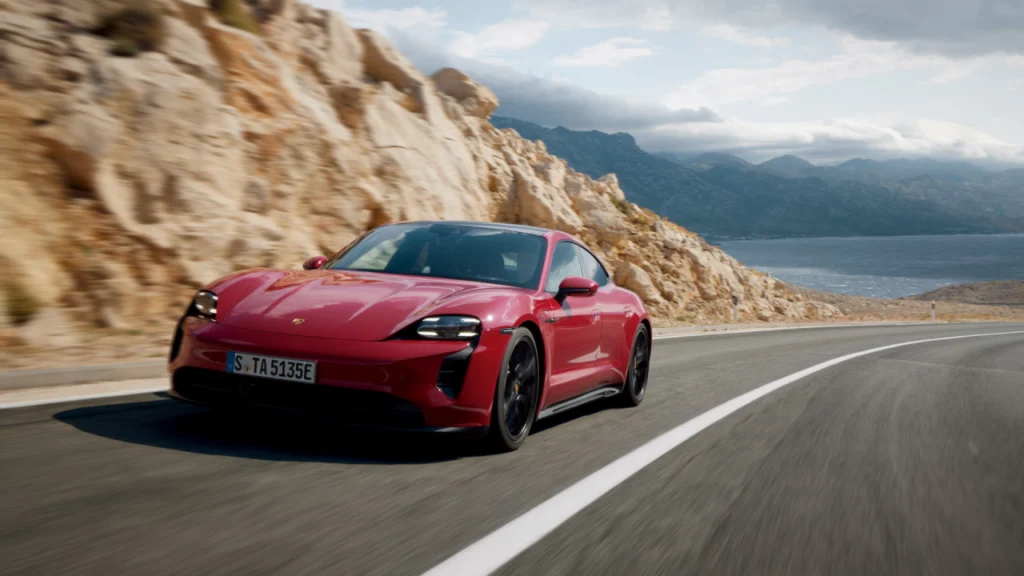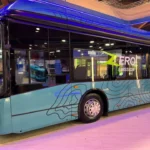For years, a persistent myth has surrounded electric vehicles (EVs): they are slow, underpowered, and lack the thrilling performance of traditional gasoline cars. It’s a misconception deeply ingrained in automotive culture but one that is increasingly out of step with the reality of modern EV technology. Today, electric vehicles not only rival gasoline-powered cars in performance but, in many cases, surpass them. The idea that EVs are slow and weak is becoming obsolete in the face of data, innovation, and real-world examples of electric automotive prowess.
The Power of Instant Torque
One of the primary reasons people mistakenly view EVs as less powerful is due to outdated notions about electric engines. The truth is that electric motors operate fundamentally differently from internal combustion engines (ICEs). While gasoline engines rely on building up power as the RPMs increase, electric motors deliver instant torque—the force that turns the wheels. This means that from a standstill, EVs have immediate access to their full power, enabling blistering acceleration.
Take the Tesla Model S Plaid, for example, one of the fastest production cars ever made. It can accelerate from 0 to 60 mph in less than 2 seconds, a feat previously only achievable by hypercars costing millions of dollars. This electric sedan, a practical family car in many ways, demolishes the performance figures of nearly all ICE vehicles, from Ferraris to Lamborghinis. The Rimac Nevera, another electric marvel, boasts a similarly mind-bending 0-60 mph time of 1.85 seconds. It’s clear that electric vehicles are not just keeping pace with traditional high-performance cars—they’re leading the pack.
Performance Beyond Speed
But it’s not just about raw speed. EVs also excel in delivering a smooth, seamless driving experience. Traditional gasoline engines are subject to transmission shifts and turbo lag, which can disrupt power delivery. In contrast, EVs don’t need multi-gear transmissions; their motors can adjust power output with far greater precision and speed. This results in a continuous, uninterrupted flow of power to the wheels, translating to a more refined driving experience.
Moreover, with fewer moving parts, electric motors are inherently more efficient and less prone to wear and tear. This doesn’t just make them reliable—it allows automakers to push the boundaries of performance. The Porsche Taycan, for instance, combines Porsche’s iconic handling with electric propulsion, proving that electric cars can still be incredibly fun to drive on twisty roads or racetracks. This is a serious counterpoint to the idea that EVs lack the dynamic qualities of performance cars.
The Rise of EVs in Motorsports
If there’s any arena where a car’s performance is put to the ultimate test, it’s motorsports. Increasingly, we are seeing electric cars make inroads in competitive racing—another strong rebuttal to the myth that EVs are underpowered. Formula E, the electric counterpart to Formula 1, showcases the high performance capabilities of electric vehicles in a thrilling race format. The series is a proving ground for cutting-edge battery and electric motor technology, with cars reaching top speeds of 174 mph on street circuits.
Traditional automakers are recognizing this shift, too. Take Audi, a brand synonymous with high-performance gasoline vehicles, which has made a full transition to electric motorsport by pulling out of the legendary Le Mans series and joining Formula E. This commitment to electric technology by prestigious performance brands signals a major shift in how power and speed are defined in the modern automotive landscape.
Power Meets Sustainability
It’s important to recognize that EVs are not just redefining performance for the sake of it. They represent a fundamental shift towards a more sustainable and eco-friendly future. The environmental benefits of EVs—zero emissions, reduced air pollution, and less reliance on fossil fuels—are well documented. But this doesn’t mean that buyers are forced to compromise on performance in exchange for sustainability. In fact, quite the opposite is true.
Many people still associate “green” technology with being less effective, slower, or inferior to its traditional counterparts. Electric vehicles are demolishing this stereotype by showing that you can have exhilarating speed and a clear conscience. This is one of the reasons why Tesla, for instance, has seen such widespread adoption—not only is it building cars that are quick, but it’s also proving that performance can go hand-in-hand with sustainability.
A Changing Consumer Landscape
As EV technology continues to advance, consumer preferences are shifting in favor of electric powertrains. Once seen as niche vehicles for early adopters or those concerned solely with environmental issues, electric cars are now mainstream and attracting buyers across all demographics. According to a 2023 survey by J.D. Power, more than 50% of new car buyers are considering electric vehicles for their next purchase, citing not just environmental benefits but also superior driving performance and lower maintenance costs.
Moreover, as infrastructure for EVs improves, range anxiety is becoming less of a concern. Fast charging stations are proliferating, and battery technology is rapidly advancing, allowing for longer ranges and shorter charging times. The era of the slow, compromised electric vehicle is long gone.
A Myth Laid to Rest
In the past, one might have argued that electric vehicles were a compromise—sacrificing power and performance in the name of efficiency. Today, that argument no longer holds water. With vehicles like the Tesla Model S Plaid, Rimac Nevera, and Porsche Taycan leading the charge, the notion that EVs are underpowered or slow is not just outdated, it’s entirely false. As consumers and automakers continue to embrace electric powertrains, it’s time to lay the myth of the sluggish EV to rest. Far from being a step down from traditional gasoline cars, electric vehicles represent a thrilling leap forward, blending speed, efficiency, and sustainability in ways that were once thought impossible.
In short, the future of automotive performance is electric—and it’s coming at full throttle.
Electric vehicles have debunked the myth of being slow and weak. With instant torque, impressive acceleration, and a smooth driving experience, they are leading the pack in performance. Additionally, their rise in motorsports and the commitment of prestigious performance brands to electric technology signal a major shift in the automotive landscape. Moreover, electric vehicles represent a fundamental shift towards a more sustainable and eco-friendly future and are attracting buyers across all demographics.ELCTRIK Speaks







